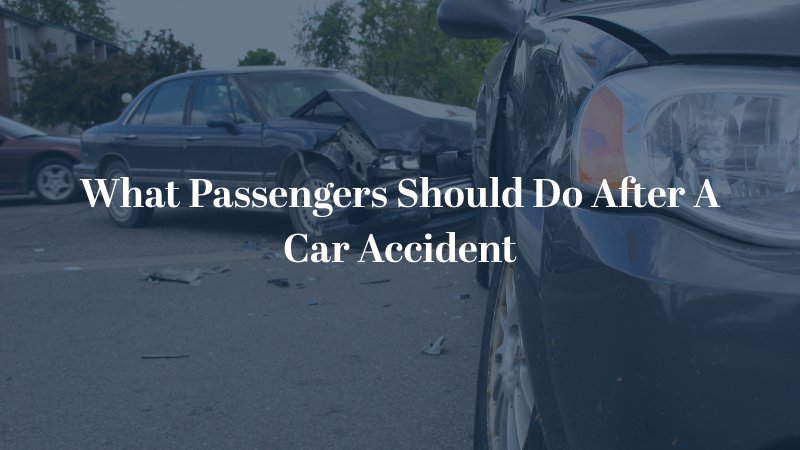As a driver, one of your key responsibilities is ensuring the safety and well-being of other road users, but also your passengers. Understanding the elements governing responsibility for passengers in your car is essential. First, it’s helpful to understand common passenger injuries and what to do after an accident occurs.
Common Injuries Passengers Suffer in Car Accidents
The impact and force exerted during a car accident can cause injuries to passengers that range from mild to severe. Some of the most common ones include:
- Whiplash
- Traumatic Brain Injuries (TBIs)
- Broken Bones
- Spinal Cord Injuries
- Bruises/Cuts/Lacerations
- Internal Bleeding
Regardless of the type of injury, it can potentially be debilitating and life changing. A complete understanding and awareness of potential risks is key to both preventing these tragic incidents as well as dealing with their aftermath.

What Passengers Should Do After a Car Accident
When confronted with a car accident as a passenger, it’s crucial to take certain steps (similar to what’s expected from the driver). Although the situation may be chaotic and stressful, the following actions will be important in protecting yourself and asserting your rights in the future:
Seek Safety: Your safety is of utmost importance. If possible and safe, relocate to an area away from traffic until help arrives.
Call the Police: Regardless of who you think might be at fault or how minor you believe the accident is, contact local law enforcement immediately so they can document the situation.
Gather Information: If you’re physically able and can do so safely, take time to gather pertinent information about the accident. Obtain names, contact details, and insurance information of all drivers involved in the incident.
Take Photos: If circumstances allow, utilize your phone’s camera to document important aspects of the accident. Highlight damage on all involved vehicles, road conditions, traffic signs, and anything else in the area that may have contributed to the accident.
Look for Witnesses: Witness statements could immensely strengthen your case later on. If there are bystanders who saw what happened, ask for their contact details. They may be able to help substantiate your claims and bring clarity to what happened.
Taking these steps will be instrumental in helping you obtain any compensation that you may be legally entitled to.
The At-Fault Driver is Typically At Fault For Passenger Injuries
In a car accident, it is usually the at-fault driver who bears responsibility for any injuries that others have suffered in the crash, including passengers in their car or another car. This typically leads to an insurance claim being filed, and in some cases, could lead to a personal injury lawsuit.
There is often some hesitation when it comes to filing a claim against someone who was driving and had an accident when you were in the car when it was a friend or a family member.
It’s crucial, however, for people in these situations to understand that when filing an insurance claim against the driver, they’re not asking their friend to personally pay them out of their own pocket.
In reality, the passenger is filing an insurance claim against the driver’s policy, which should provide some coverage for their medical expenses, lost wages, and property damage – depending on their policy limits.
As the driver, it’s helpful to understand that you aren’t being asked to pay your passenger’s expenses unless a personal injury lawsuit is filed against you. If you have any questions or need help after an accident, whether you’re a passenger or a driver, contact our Washington D.C. car accident lawyers today to schedule a free consultation.